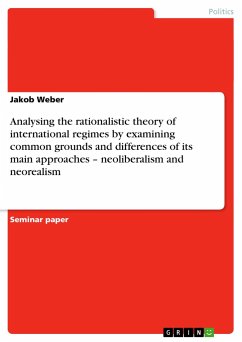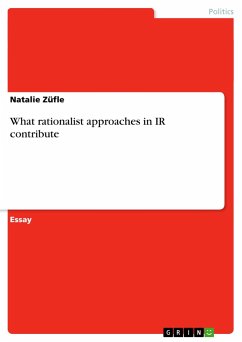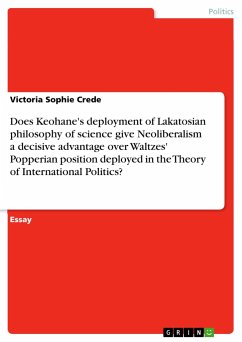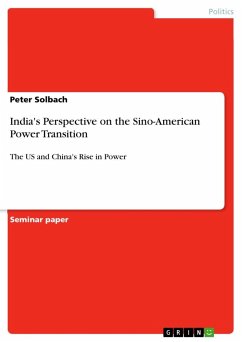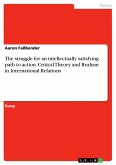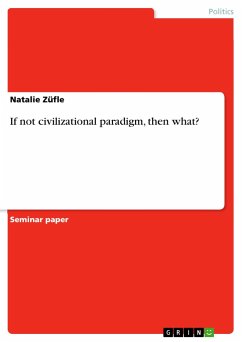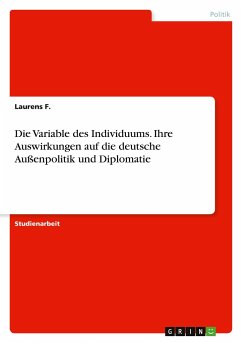Seminar paper from the year 2009 in the subject Politics - International Politics - Topic: International Organisations, grade: 1,0, University of Bamberg (Lehrstuhl für Internationale Beziehungen), course: International Institutions, language: English, abstract: When one wants to understand international regimes - their formation, maintenance and breakdown, the best way to begin is to try analysing these aspects by looking at and using theories connected to these specific problems. In our case we have a set of three main theories that are concerned with the wide field of international regimes: interest-based neoliberalism, power-based neorealism and knowledge-based cognitivism. Each of those theories has a unique view of international regimes and the phenomena related to them, although when looked at closer, one notices that they do in fact have several things in common. Of these three, neoliberalism and neorealism are both rooted in and based on the theory of rational choice - that is rationalism. Within the boundaries of rationalism however they do preserve their own interpretations of international regimes. In this essay we will therefore focus on the converging aspects of neoliberalism and neorealism as well as on their differences. Thus in the end it is our goal to show possible ways of how these two rationalistic approaches could be amalgamated so that their advantages may be used in a combined form by future political scientists, not ignoring the difficulties that one faces, when making such an attempt.
Bitte wählen Sie Ihr Anliegen aus.
Rechnungen
Retourenschein anfordern
Bestellstatus
Storno

